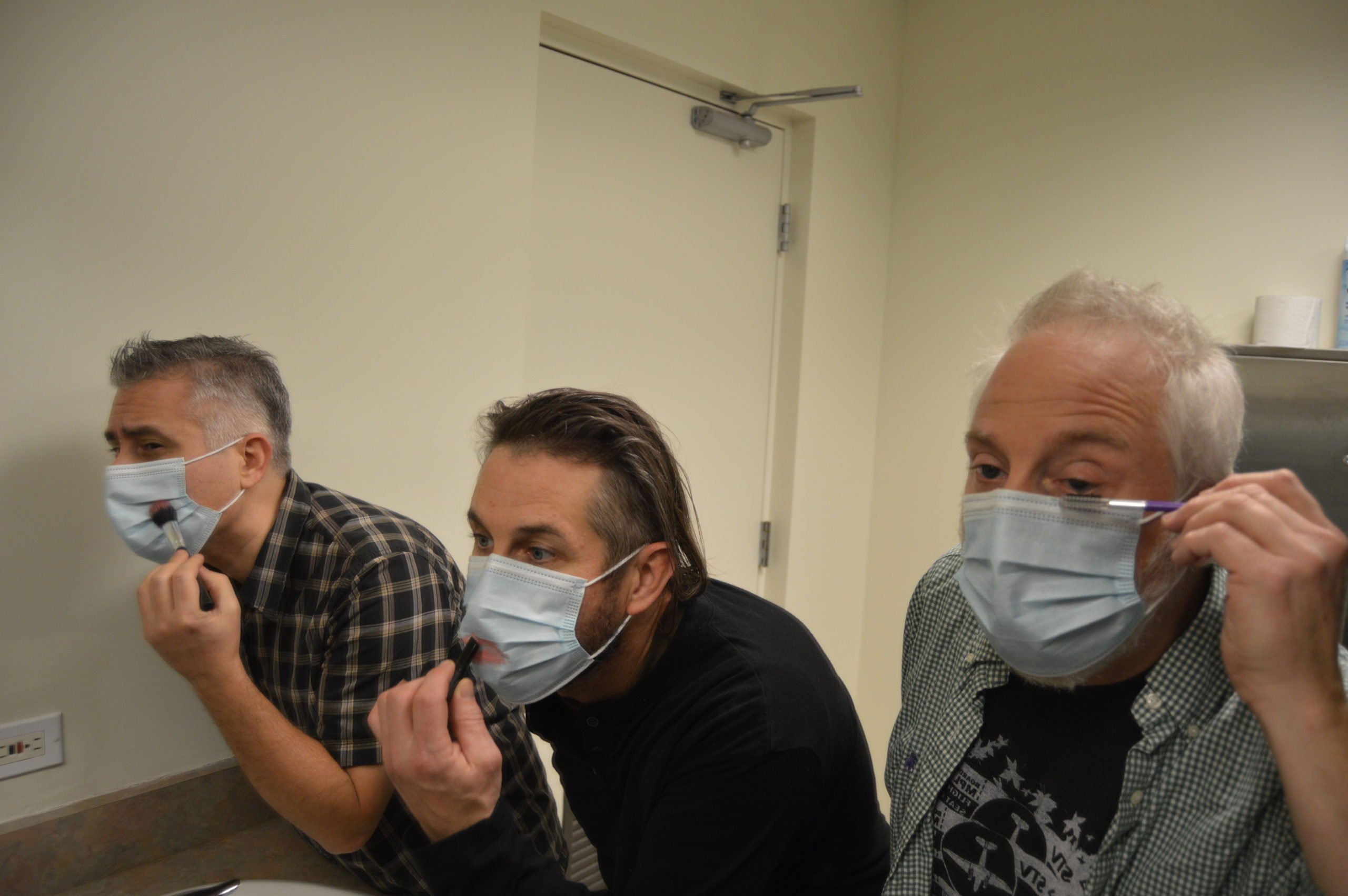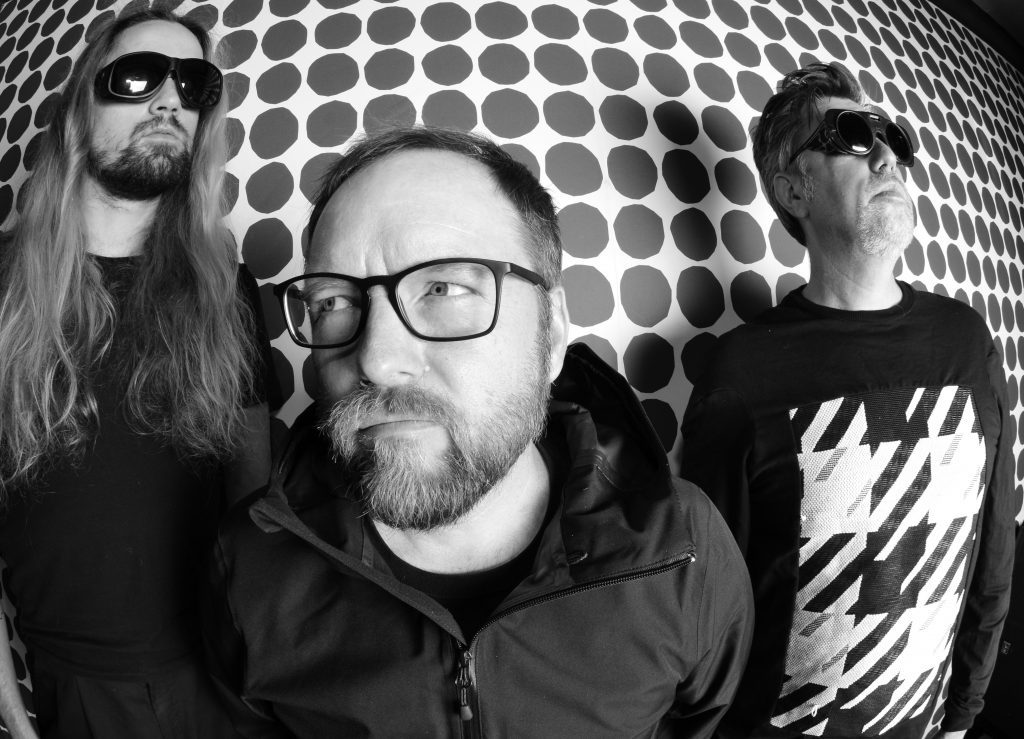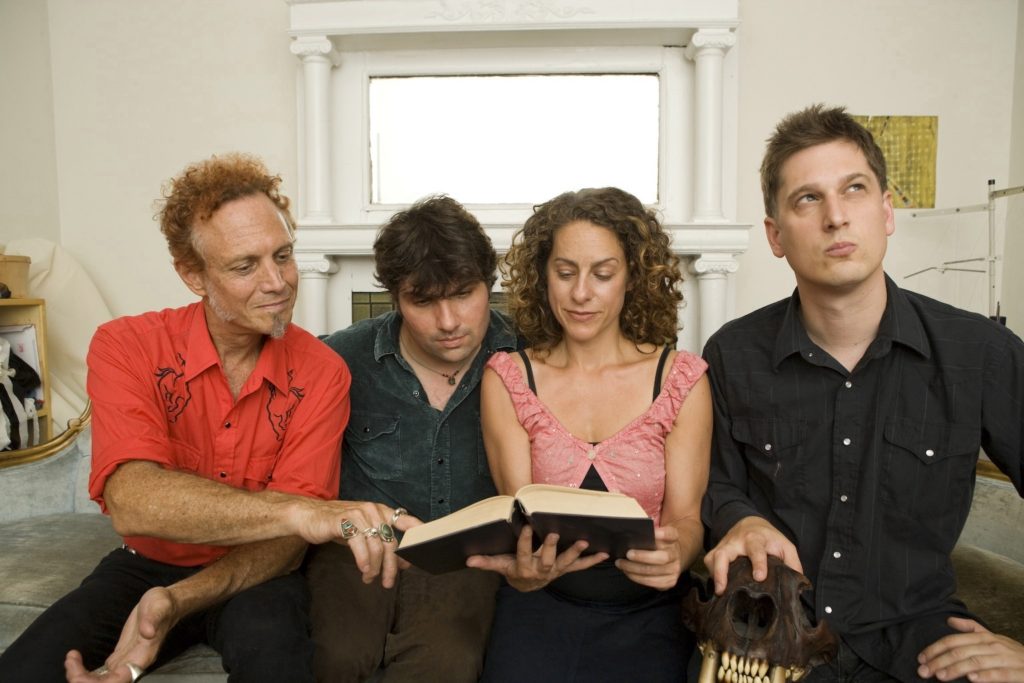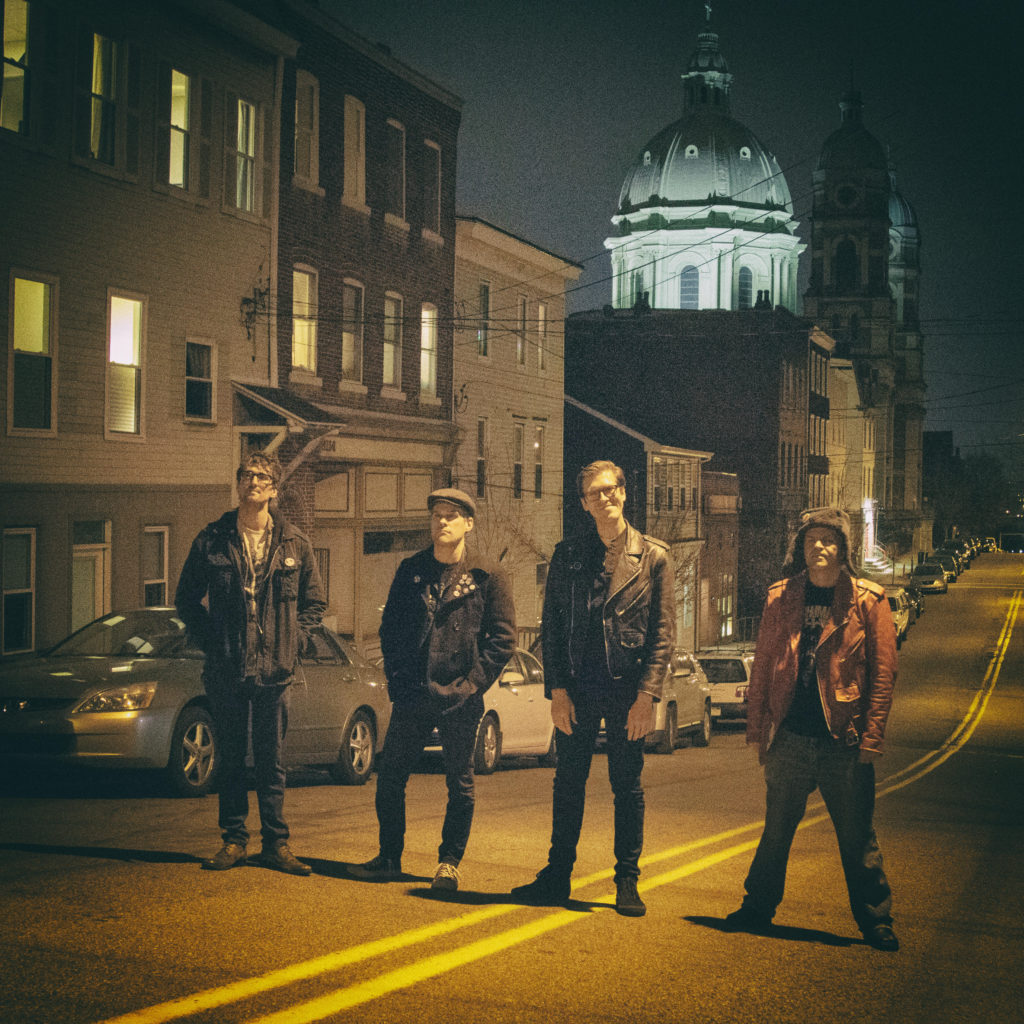Nonagon is at a crossroads.
The Chicago post-hardcore trio has nearly 20 years under its musical title-belt, but on March 3, these long-time purveyors of blistering EPs and addictive split singles will unleash their full-length debut LP, They Birds.
With the record comes a kind of reckoning. Though John Hastie still roars over his barbed-wire electric guitars and drummer Tony Aimone and bassist Robert Wm. Gomez still pound the hell out of the refrains with a tasty venom, there are moments on the record that are – dare we say – downright melodic, even hummable after first spin.
Hastie is the trio’s de-facto front man and its most verbose member. By day, he works as a sales rep for Random House; by night and on stage, he cuts a mean figure, lobbing into listeners’ ears sparky riffs that fall somewhere between Bob Mould and Ian MacKaye. The Husker Du reference, in particular, fits well on They Birds and Hastie calls the legendary ‘80s outfit, as well as LPs like Zen Arcade, “a huge touchstone.”
“We’ve become a little less melody-phobic,” Hastie told Spectrum Culture. “In the early days of the band, we were real eager to do something nobody else was doing … and the songs never really breathed that much.”
Early offerings like No Sun, which the trio self-released on Aug. 15, 2008 to document the first five-plus years of its existence, were blistering affairs, frequently clocking in around 15 minutes.
“Distorted guitars swirl and stagger, seeking a neck to slash. The rhythm section, all light-footed drums and bouncing bass, pops holes in your speakers,” I wrote for the now-defunct music web magazine Delusions of Adequacy nearly 13 years ago. “[But] the group flashes moments of inspiration where dynamism trumps speed.”
“We were such spazzes back then and I think the records showed that,” Aimone laughed.
The new record, by comparison, starts with “Tuck the Long Tail Order,” previously a single whose melodic and punky aspirations reveal two major Hastie influences – Husker Du and Naked Raygun.
“After I was done with Rush or whatever in seventh grade and I went to a Naked Raygun show – that for me was formative,” Hastie admitted.
“[They Birds] is not as spastic, at times, which is kind of nice. I like it a lot,” Aimone said. “I think it’s my favorite of our records. I think we’re all pretty psyched about it. There are songs where I definitely started humming along.”
Don’t think for a hot second, though, that Nonagon isn’t still raging, even boiling over into a fury, at the oft-quoted dying of the light. The trio hails, after all, from Chicago and proudly champions Second City’s punk and post-hardcore legacy. I mean, for Christ’s sakes, the new LP even was recorded at Steve Albini’s iconic Electrical Audio studio and mastered by Shellac’s Bob Weston.
“Slow Boil,” the new record’s third track, is almost defiantly venomous. Gomez occasionally flashes an angularity and sense of pulsing rhythm reminiscent of another Chicago Wm., that being David Wm. Sims of The Jesus Lizard. And the guitar on the track bounces between trebly shards and pure strikes of electrified caterwaul. The song’s lyrics fit it like a glove; they deal with the frustrations of not aging gracefully. (For what’s it worth, the band members are all closer to 50 than 25.)
Nonagon, though, is not always a caged beast that’s poked and prodded, then released on city streets to do its master’s bidding. In all honesty, the band members can be pretty damn funny.
Take the record’s name. Hastie used to live in Lawrence, KS, and, one day on tour relayed a reminiscence of how the town’s winged hunters would wait near the mouth of the dam in anticipation. It was, he said, one of the only places on the river not frozen over in winter.
“Why’d they do that?” Aimone, or was it Gomez, asked Hastie.
“They fish,” Hastie retorted.
“No,” Aimone shot back with a smile, “they birds.”
“The packaging for the record, the name of the record – it’s kind of fun,” Hastie said. “It shows a sense of humor. It shows a sense of personality. People who make loud and angry music are often much more balanced people than people who make pop music.”
Touché.
The band also has had time to percolate over the new recording. It was cut quickly in the studio back in the waning moments of 2019, and had been shelved by Controlled Burn Records, the label the trio runs with members of New York’s Austerity Program, for most of the COVID-19 era.
“It’s weird ‘cause this record’s been around with us for over a year,” Gomez told Spectrum Culture. “These songs themselves, we’ve been around with them forever – but it’s nice to have a big ol’ LP. There’s something about this last bunch of songs; they feel fresh to us.”
“Everything that’s on [They Birds] is at most one of two takes, and all the instruments, minus a couple overdubs, were all recorded live – it was one, two, three, go!” Hastie said. “We’re certainly proud of our old songs. But it actually involved more artifice to make it sound like there was less artifice. There were times in the beginning we were so in our ‘Let’s fuck shit up’ [mindset] that we didn’t let songs breathe or trust them. What you’re hearing now is we’re letting songs do that, breathe more often.”
For all of the excitement of the new record, each band member remains very particular to spread around the love and the credit, often between the members themselves or They Birds engineer Jon San Paolo.
“We’ve been in the band, like, 17 years. We’re still enjoying the process,” Hastie said. “Everyone has veto power if something bores them. ‘Is it fun for you to play?’ ‘Does it sound good?’ That’s it … that’s also why this record has taken us 30 years.”
The band doesn’t boast any grandiose record-release plans, mostly due to the reality of working and living during a worldwide pandemic.
“I would like to just sometime get back on a stage and play,” Gomez said. “Hopefully, we just get together and practice and play a show eventually.”
“I think a couple of songs [on They Birds] are a little more – I don’t want to use word, but – accessible,” he added. “There’s a lot more variety in terms of the tempo and tone. Hopefully, people will like it beyond our normal circle of friends.” — Justin Vellucci, Spectrum Culture, March 1, 2021
-30-




